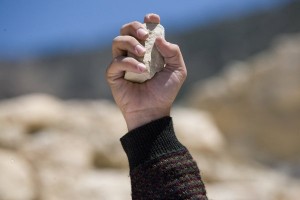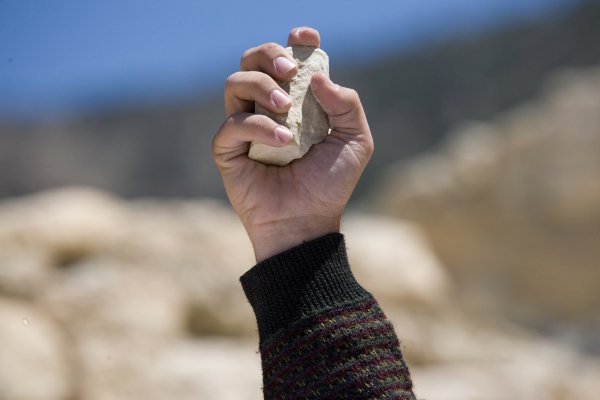 In an effort to reach out to the Muslim world, Obama shocked the nation by expressing the opinion that America, despite the fact that 76% of the population identifies with Christianity, is not a Judeo – Christian nation, but actually is “one of the largest Muslim countries in the world.”
In an effort to reach out to the Muslim world, Obama shocked the nation by expressing the opinion that America, despite the fact that 76% of the population identifies with Christianity, is not a Judeo – Christian nation, but actually is “one of the largest Muslim countries in the world.”
Obama also said that the United States, as well as other portions of the Western hemisphere, has a responsibility to “educate [themselves] more effectively on Islam.” Barack acknowledged that during the education process the inevitability of “tensions between cultures” would arise, but the President vowed to work together with Islam around the world to avoid divisions rooted in differing thinking from one culture to the next.
For a nation accustomed to resolving issues from a Judeo-Christian standpoint, “inevitable tensions between cultures” can’t help but arise when education includes understanding the diversity of Muslim methods for handling disobedience to Koranic law.
Take for example Afghani Taliban fighters who like to play God, and when they do, they are “no respecter of persons.” Taliban insurgents are devoted to stoning, hanging, and shooting people with AK-47’s regardless of age, gender, innocence, or guilt.
Recently, after the brutal execution of a young couple accused of infidelity, clarity was gained when Taliban spokesman Zabiullah Mujahid described the philosophy of Islamic justice with the following statement: “Anyone who knows about Islam knows that stoning is in the Koran, and that it is Islamic law. There are people who call it inhuman – but in doing so they insult the Prophet. They want to bring foreign thinking to this country.”
One thing is for sure – in the small Afghan village of Dashte Archi in Kunduz, Afghanistan, “foreign thinking” was nowhere to be found when two mullahs convicted and stoned Siddqa, a woman not yet 20 years old, for the crime of fleeing a prearranged marriage and allegedly committing adultery. “Officials said that Siddqa had run away after being sold … for $9,000 against her will. She ran away to be with Khayyam, who was already married and had two children…the pair eloped to Pakistan.”
Although it is an alien concept to those living in a largely Judeo-Christian culture, women in Afghanistan are denied the right to pick a mate and oftentimes girls as young as 13 are sold into marriages with men old enough to be their grandfather.
It’s likely Siddqa was a victim of child marriage, which makes one wonder why she and her lover Khayyam believed “the false promise” that if they returned home from Pakistan, they would not face punishment. The couple, after arriving in Kunduz in the dead of night, was “dragged” by Taliban fighters from their family homes and brought before a “kangaroo court …[and]…executed.”
From a Judeo-Christian perspective, one would think Siddqa’s first mistake was agreeing to submit to an arranged marriage. Whether living in the East or the West, most would concur that Siddqa’s second error was running off to Pakistan with someone else’s husband and then being naïve enough to return home, trusting that the same group who force pre-pubescent girls to marry old men would suddenly extend mercy toward an adulteress.
Although hoping to avoid cultural tension, in a nation whose sensibilities are rooted in Judeo-Christian principles, doing so would be virtually impossible when struggling to comprehend what motivates hundreds of male villagers to wait patiently while two mullahs sentence a young woman to death.
In Kunduz, the wait was short and the verdict swiftly handed down. Siddqa was immediately prepared for execution, lowered into in a four-foot hole in the ground and covered from head to toe in a blue burqua that restricted both her ability to move and see. The bloodthirsty group milled around, anticipating the signal to step forward and exact justice by pitching large rocks at her head as she “desperately [tried] to crawl free.”
Despite being bombarded with stones, Siddqa somehow managed to wriggle free from the waist-high hole in the sand, “covered with blood –but miraculously still alive.” Broken, bloody, and bruised, the condemned woman collapsed only to have an insurgent uphold the Taliban’s interpretation of the Koran and make short work of a young life by shooting her “three times in the head with an AK-47 as a frenzied crowd of men shouted ‘Allahu Akbar.’”
Presented with the harsh cultural alternative, “foreign thinking” Americans likely prefer Jesus’ method of handling a similar group of stone throwers and the forgiving words that followed: “Woman, where are they? Has no one condemned you?” To which an ancient Siddqa replied, “No one, Lord.” After which an adulteress was released with an admonition, “Neither do I condemn you; go, and from now on sin no more.”
Unfortunately, the outcome in Kunduz was not a merciful one. After Siddqa’s death, accused male offender Khayyam was “marched in front of the crowd with his hands tied behind his back…blindfolded with his own tunic.” In a fruitless effort to shield his body from pain prior to, and in anticipation of, a hailstorm of bone-shattering rocks, the young man “crouche[d] down close to the ground.” Stooped on his haunches, Khayyam could be “heard sobbing before eventually falling silent.”
After both victims “slumped to the floor,” 7,500 miles from what Barack Obama considers “one of the largest Muslim countries in the world,” a whipped-up mob in Afghanistan, in an effort to ensure the Prophet remained shielded from insult, continued to rain stones down on two lifeless bodies.
Thus, a delicate question arises for Obama concerning varied interpretations of the Koran that include inhumane forms of justice pleasing to the Prophet. As the President attempts to engage the Islamic world in an ongoing friendly dialogue and welcomes Muslims to America from every corner of the world: How does a leader avoid stirring “inevitable cultural tension” without accepting the “foreign thinking” of large segments of the Muslim world?

